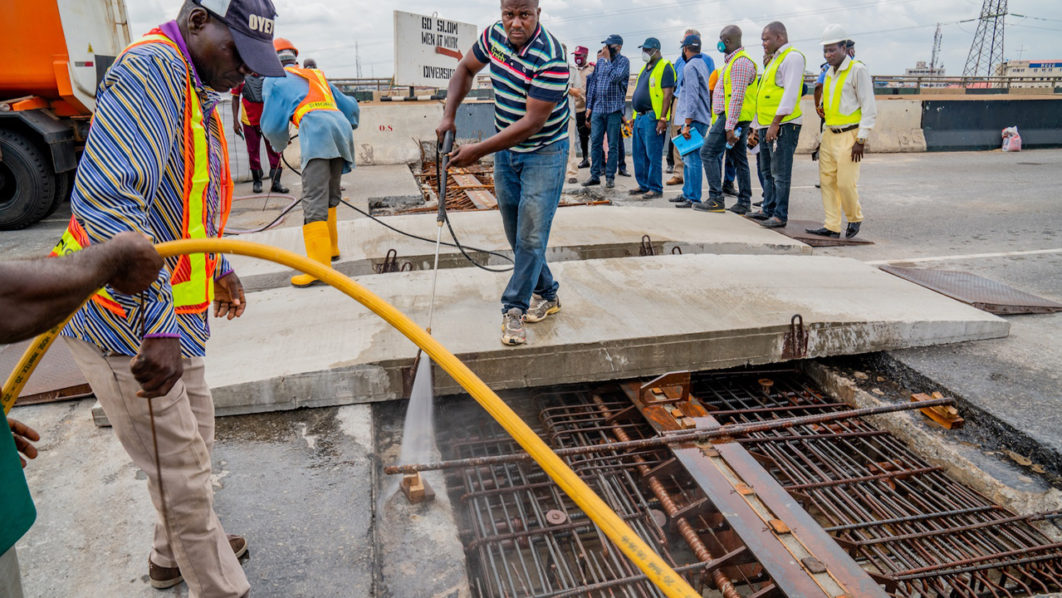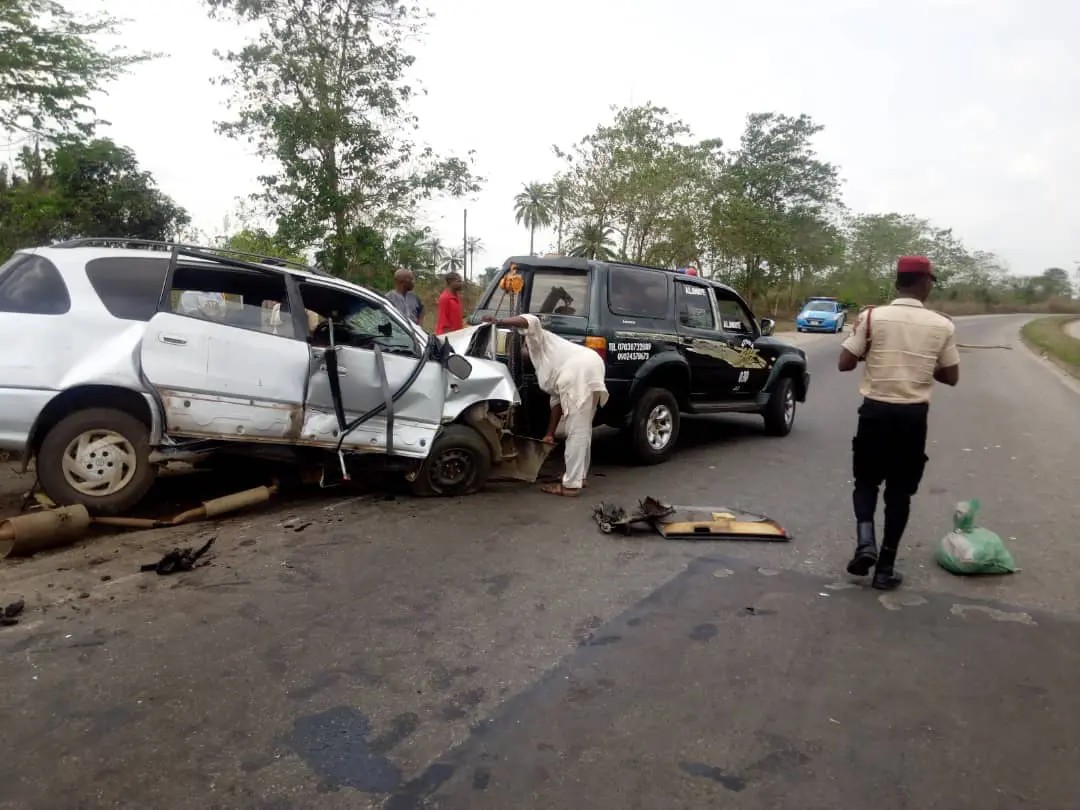
Recognising transport as the requirement to unlock new and non-oil economic growth and trade, stakeholders have emphasised transport investment, particularly from the private sector, in recent economic development plans.
Previously, Nigeria faced transport infrastructural decay characterised by inadequate maintenance, poor service delivery, monopoly of transport enterprises, poor road maintenance, and the precarious state of rail and maritime sub-sectors.
Some of the shortcomings identified in the nation’s transport system include the absence of a template or national transport policy for multi-modal integration and coordination, poor policy control where such policies exist, the disintegration of rail for both intra and interurban travels, mass transit, inland waterways, and poor inter-connectivity.
Indeed, stakeholders in the industry disclosed that commemorating the Diamond Jubilee only amounted to celebrating failure. Although the sector has recorded some achievements over the years, they fall below expectations, given the huge potential yet untapped.
Founder, Safety Beyond Borders, Patrick Adenusi, said the transportation sector has actually failed given that there has been no serious improvement in the sector.
Adenusi recalled that in the 60s to the early 70s, vehicular movement was not as much as it is now, law and order was a major part of our living. Apart from air travel, road travel is a compound failure, rail rather than improving collapsed, water transportation is struggling.
“If we put all together, Nigeria has not gotten 20 per cent in terms of her transportation development. Within the major cities, there should be monorails and tracks, interstate. It is shameful that you can not actually take a fast train from Lagos to Abuja at 60.
“These are things that ought to be in place, the pressure on our roads is extremely high because 80 to 85 per cent of our movement in Nigeria are facilitated on-road and with varying challenges of failed portions of the road, poorly constructed roads, roads without adequate signage, poorly maintained vehicles, and lack of replacement of vehicle parts. In transportation as a whole, we only record 20 per cent,” he said.
Dean, School of Transportation and Logistics, Prof. Samuel Odewumi, said the major shortcomings are in the absence of coordination in the sector. Currently, the National Transportation Policy is still in a draft form two years after the summit.
“When you don’t have a road map or policy in place, what you have is disjointed and haphazard development without direction. This is more so in a politically and ethnically divisive country where the decision of which road or airport to build is more of sentimental and political wire-pulling than the rational allocation of resources for optimal performance of the sector.
The university don said there is no coordination between the various tiers of government: federal, state, and local. Every tier is working in a silo with no overview of the spatial framework of development.
He argued that transportation performs better when it is taken as a system, adding that building a road that does not link the network or national grid is not going to deliver optimal service for Nigeria’s socio-economic growth.
According to him, even Lagos State that is often at the frontline of many sectoral innovations does not have an operational transport policy in place, and the one developed about two years ago is yet to be activated.
Proffering solutions, Odewumi said national coordination and synchronised transportation policy will aid the development of the sector.
He said: “As for gains, they are far too little and are not even catching up with the rate of deterioration of the inherited infrastructure. There are islands of development here and there that do not form a network for an efficient system.
“The frenzy in the construction of rail lines may be taken as one of the gains, but the fact that the construction is holistically outsourced to China is shameful. There is no rocket science technology in the construction of rail lines that we cannot locally fabricate to build local capacity. We have masses of unemployed educated youths that could be given minimal training to grow the sector especially land and water.
“Lagos State in particular should drop this infatuation with importation of high-tech buses and give specifications for the building of high capacity buses. Lagos needs modernised Molue that can move a large number of its millions of commuters daily.
“Let there be a think-tank on the way forward for the sector. We cannot continue with this disorganised and disjointed development approach.”
However, the Nigeria Union of Railway Workers (NUR), said railway development generally has been very phlegmatic and quite discouraging.
NUR noted that if the rail transport sub-economy had been given appropriate attention and its infrastructure deficits squarely rolled back by initiating system transformation from narrow or cape gauge of 3.6ft wide track to a modern or standard rail gauge, the Nigerian railway industry would have known greater infrastructural improvement than this.
The union commended the government for completing the 184km Abuja-Kaduna railway project and making it operable to a point that the facility now serves as the flagship of the rail transport industry.
Speaking with The Guardian, Secretary-General, NUR, Segun Esan, said: “We appreciate the fact that the 273km Warri-Itakpe standard railway built and completed and abandoned for some tens of years has been resuscitated, and about to be running passenger train services together with its traditional role of providing transportation for the iron ore producing Ajaokuta/Itakpe.
“The question, however, is: is it just 184km and another 273km of standard gauge railway totaling 457km the best that Nigeria can have in over 60 years? Certainly No! This tells that we have to rework our political will and commitment and collective consciousness as a nation to determine whether we truly need a developed Nigeria through a developed railway.”
Esan said the Federal Government needs to do more in rapidly developing its railway even as Nigeria turns 60. The standardization and modernization of the railway system must be rigorously pursued with stronger political will and commitment to actualize all proposed construction of track across Nigeria, to facilitate integration and better transport sub-economy.
He also cautioned the federal government to be careful and wary of taking loans with suicidal terms and conditionality to build the railways.
According to him, with commitment and diligence, rail transport infrastructure can still grow using other friendlier models and approaches than borrowing from a nation with an alleged penchant for seizing national assets of debtor nations for their failure to pay back their loans to the creditor nation.
“We are aware that the development of railways is labour and capital intensive. Yet, track construction and rail transport development can be attained if the government is committed to gradual and installment development rather than wanting to lay up to 500km of the track at a go! Rome, they say, wasn’t built in a day. Gradual process is it!
“Nigeria at 60, we look forward to seeing the Federal Government making the railway industry in Nigeria go completely autonomous and constituted to a Federal Ministry of Railways or Nigerian Railway Authority or Commission, as this will make it more efficient, effective, and keenly competitive among other mosses. It will make it perform its role as the infrastructure backbone of our transport economy, make it truly a massive employer of labour and make it attractive to young and employable Nigerians to work and take career paths.
“We must also give adequate attention to the workers with a view to improving their salaries and general condition of service, which, as of today, are very poor and discouraging.
“More importantly, the Federal Government should shelve its plan to privatize the rail transport subsector, as this will not bring any better outcomes, as we have seen with all the privatization of the state-owned enterprises (SOEs) like the iron and steel industry, power sector and the rest.”
“The beauty and efficiency of the railway industry lies in its being and perpetually remaining public transport. Privatization of the railway will shift concerns from safety to profit-making, and that will mean more accidents and losses of lives and railway assets,” he said.






